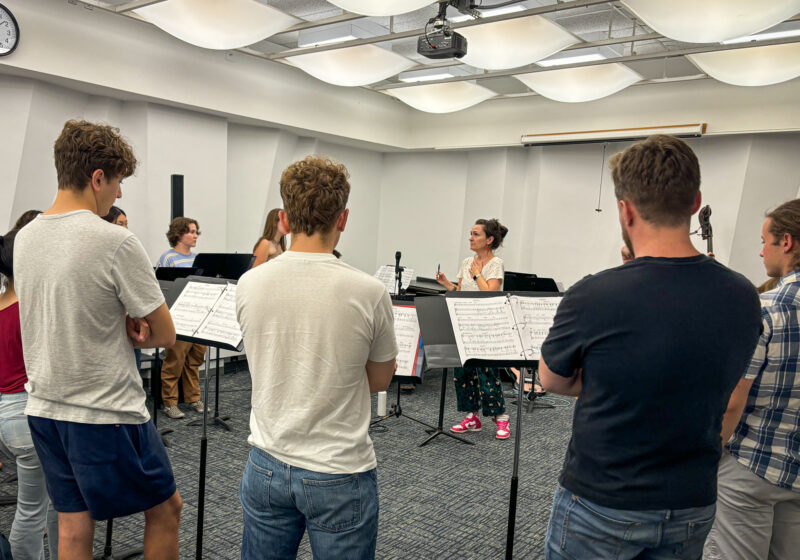Grassroots has brought about several new programs in an attempt to bring added environmental awareness to campus. Most notable has been the placement of recycling bins around campus, and the distribution of reusable mugs to the freshman class.
The production of the mugs was make possible by a coalition of Grassroots, Facilities, Dining Services, the bookstore, and Heberle, the company UR contracts to manage recycling.
Students who use their mugs to buy beverages at a la carte meals, Java’s, Hillside Cafe, the Pit, and other venues that otherwise serve drinks in Styrofoam or other non-recyclable materials receive a discount on their purchase.
“Any location that serves a beverage should provide the discount, ” said Grassroots President and senior Audrey Stewart. “The discount system, however, is still being perfected.”
“They have a dual benefit,” said sophomore Tom Weingarten of the mugs, referring to both the student discount and the cutting down of dining service waste. “They help everyone out.” He added that Facilities and Dining Services were eager and cooperative about the proposal.
Weingarten and sophomore Sajay Menon, who coordinated the project, got the idea from schools like RIT, which had successfully implemented a similar system.
“I think everyone in Grassroots is really excited by the reaction the freshmen have shown to the mugs so far,” Weingarten concluded. “We hope that they will help us make it a successful program.
Junior Zoe Sylvester, who coordinated the purchase and distribution of recycling bins, has the same positive hopes for her program.
It took approximately a year to compile a proposal that displayed the student initiative Facilities required to provide the $12,000 grant for the bins.
The bins, located in academic buildings throughout campus, are organized into “trio systems. “A trio system has three bins,” Sylvester said. “The no-top bin is for trash, the blue is for paper, and the green is for containers – glass, tin, aluminum, plastic.”
“The trio system is established as an effective way to sort trash and recycling,” Sylvester continued. “We looked to other programs, like the one at RIT, to decide what was successful.”
Aside from their environmentally beneficial effect, the recycling bins are also economically efficient for UR.
The university pays a tipping fee per ton of trash they have removed – the distribution of the bins, however, diverts trash that is recyclable and reduces the amount of waste. Since there is no tipping fee for the diverted recycling, the correct use of the trio systems lessens the university’s spending on waste disposal.
There have been some minimal difficulties with the trio systems, which were distributed in the beginning of September. The grant, although generous, was not large enough to pay for labeling for the bins. Although this has not resulted in their misuse, Sylvester feels that as a result of the lack of labeling the bins are underused.
In addition to the two completed projects, Grassroots has several other things in the works. Their energy committee is working to create an energy coalition with representatives from facilities, faculty, and the student body, says Stewart, to address issues of energy awareness and conservation. The Living Lands Committee is also coordinating a project, a plan to serve a holiday meal made entirely of locally-grown foods next semester. Finally, The Reduction Committee is making deposit boxes for dining halls to give students the chance give feedback in the form of what Stewart calls “environmental suggestions.”
“Most of the projects Grassroots works on have not only environmental but also economic and social benefits,” said Stewart. The local foods campaign, for example, can be economically beneficial if local crops can be obtained at a lower cost than imports. “Additionally,” Stewart said, “it truly has the potential to strengthen the university’s relationship with the local community.”
Stewart is confident of the support Grassroots receives for their efforts. “We have established a good relationship with the university thus far,” she said, “and strive for continued partnership with members of faculty, facilities and the administration. Our projects make ecological and economical sense, and so I feel strongly that the university will continue to support our initiatives.”
Stewart hopes that one day UR will be ecologically sustainable. “For now, we are making small steps towards the realization of that goal,” she concluded.
Chepovetsky can be reached at mchepovetsky@campustimes.org.




